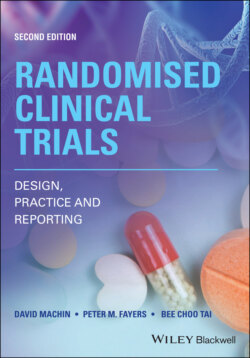Читать книгу Randomised Clinical Trials - David Machin - Страница 29
1.3.2 Randomisation
ОглавлениеRonald A Fisher (1890–1962) in laying the foundations of good experimental design, although in an agricultural and biological context, advocated the use of randomisation in allocating experimental treatments. Thus, for example, in agricultural trials various plots in a field are randomly assigned to the different experimental interventions. The argument for randomisation is that it will prevent systematic differences between the allocated plots receiving the different interventions, whether or not these can be identified by the investigator concerned, before the experimental treatment is applied. Then, once the experimental treatments are applied and the outcome observed, the randomisation enables any differences between treatments to be estimated objectively and without bias. In these and many other contexts, randomisation has long been a keystone to good experimental design.
The need for random allocation extends to all experimental situations including those concerned with patients as opposed to agricultural plots of land. The difficulty arises because clinical trials (more emotive than experiments) do indeed concern human beings who cannot be regarded as experimental units and so should not be allocated the interventions without their consent. The consent process clearly complicates the allocation process and, at least in the past, has been used as a reason to resist the idea of randomisation of patients to treatment. Unfortunately, the other options, perhaps a comparison of patients receiving a ‘new’ treatment with those from the past receiving the ‘old’, are flawed in the sense that any observed differences (or lack thereof) may not reflect the true situation. Thus, in the context of controlled clinical trials, Pocock (1983) concluded, many years ago and some 30 years after the first randomised trials were conducted, that:
The proper use of randomization guarantees that there is no bias in the selection of patients for the different treatments and so helps considerably to reduce the risk of differences in experimental environment. Randomized allocation is not difficult to implement and enables trial conclusions to be more believable than other forms of treatment allocation.
As a consequence, we are focussing on randomised controlled trials and not giving much attention to less scientifically rigorous options.
